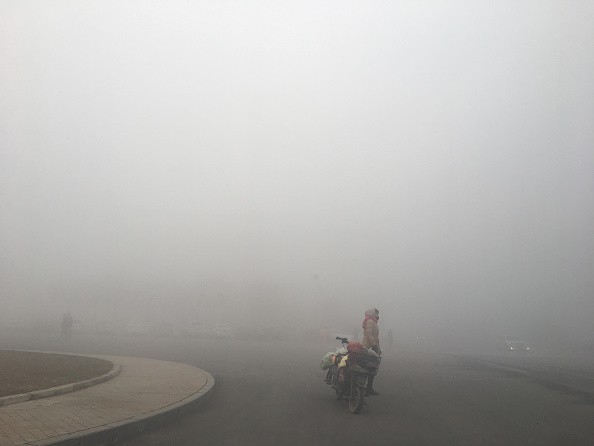China's communist leaders are trying to minimize the anger they're getting over their inability to solve the country's intractable and poisonous smog problem by limiting the amount of information and smog alerts it issues to the public.
This incredibly inane decision pretends the smog problem isn't as bad as it really is. And to make sure that perception sticks, Beijing has just established a single network to monitor air pollution levels across the country in a brazen effort to control the spread of information about the country's toxic smog.
The decision reinforces one made last month by the national Meteorological Administration ordering local meteorological bureaus to stop issuing haze alerts.
Alarmed Chinese citizens went online warning Beijing is attempting to suppress information about the chronic and worsening problem that might trigger social unrest throughout the country. The government claims the move seeks to eliminate falsified data.
In October 2016, environmental protection officials in Xi'an, Shaanxi province were caught tampering with air quality monitoring equipment to produce fraudulent numbers lower than the real count.
As part of an apparent government-led campaign to suppress news about China's toxic smog problem, government censors are still deleting all the news they can about smog in China.
Chinese media said Beijing ordered all Chinese websites to "find and delete" a two-year-old story from The Paper, a Shanghai-based digital news site, about pollution's health risks.
This mundane story quoted a Peking University study finding that PM 2.5 atmospheric pollution caused 257,000 excess deaths in 31 Chinese cities. Levels of PM 2.5 in Chinese cities regularly exceed the World Health Organization's recommended safe limit of 25 micrograms per cubic meter of air, often by as much as 10 times.
PM 2.5 is linked to higher rates of chronic bronchitis, lung cancer and heart disease. Deaths related to PM 2.5 are rising in China.
In February 2016, scientists from the United States, Canada, China and India said they found that air pollution caused more than 5.5 million premature deaths in 2013. Of this total, 1.6 million or 29 percent were in China.



























